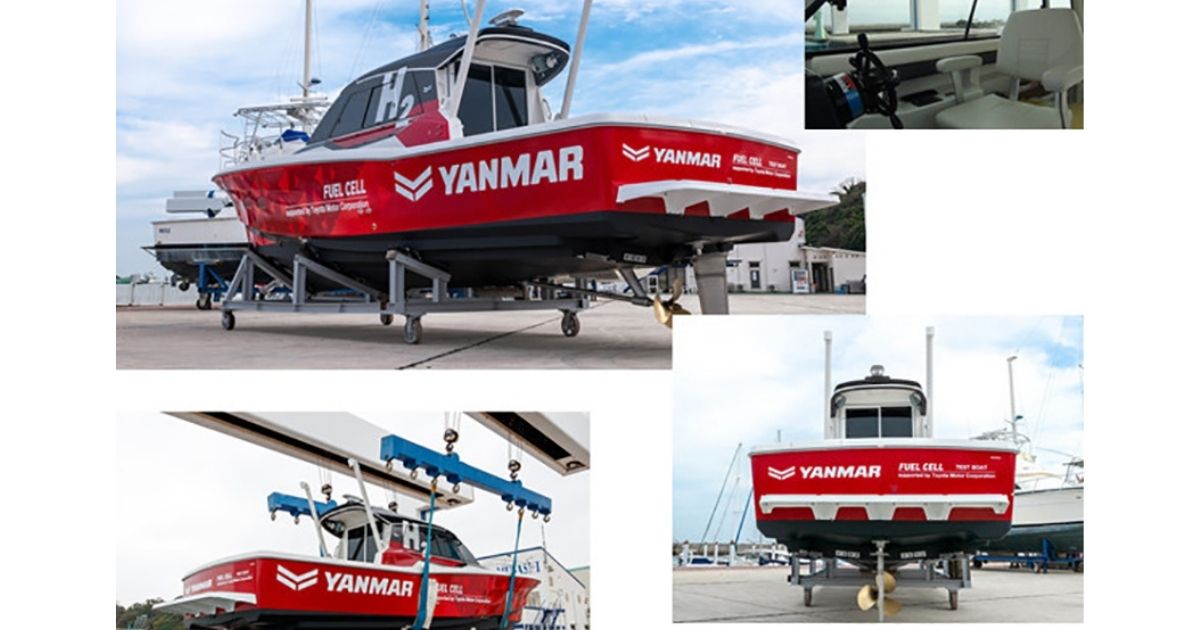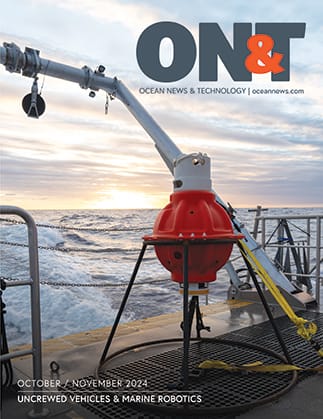The International Maritime Organization has announced a strategy to reduce greenhouse gas emissions to zero by the end of this century. With marine environmental regulations tightening worldwide, in December last year, the Japanese Ministry of Economy, Trade and Industry formulated its “Green Growth Strategy towards 2050 Carbon Neutrality”. The strategy highlights the development of energy and power sources that reduce the impact on the environment, including those for vessels powered by carbon free fuels such as hydrogen and ammonia.
A global leader in maritime powertrain technology, Yanmar was among the first companies to comply with environmental regulations with its development of dual-fuel marine engines. Looking to the future of powertrain technology, Yanmar has developed a maritime fuel cell system that incorporates hydrogen fuel cell modules from Toyota’s MIRAI automobile. The system was installed into Yanmar’s EX38A FC pleasure boat for field testing.
The boat is the first to officially comply with the safety guidelines for hydrogen fuel cell vessels formulated by the Ministry of Land, Infrastructure, Transport and Tourism in Japan. Yanmar aims to verify specific issues and solutions in a maritime environment for deployment of the maritime fuel cell system. Looking to the future, Yanmar has plans to scale the maritime fuel cell system by connecting multiple units. The system is planned to be deployed to larger vessels by 2025.
Demonstration test boat specifications
| Model | EX38A(FC prototype) |
| Weight | 7.9 t |
| Length/Beam | 12.4 m / 3.4 m |
| Power | 250 kW |
| Fuel Cell Type | Polymer Electrolyte Fuel Cell x 2 modules |
| Hydrogen tank | 70M Pa x 8 tanks |
| Inspection body | Japan Craft Inspection Organization |
| Test Location | Kunisaki, Oita, Japan |
For more details, please visit the official website of Yanmar Holdings Co., Ltd.

